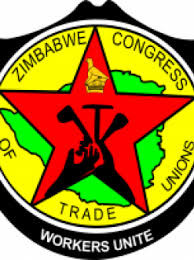
TRADE unions have called for urgent dialogue to address the country’s rapid economic informalisation, which now accounts for 76,1% of the economy.
With the informal sector generating an estimated US$14,2 billion annually while operating outside regulatory frameworks, stakeholders warn of systemic risks unless structural reforms are prioritised.
“It is now time for us to have engagement and dialogue that speaks directly to that which matters to us as a country . . . so that we can advocate with one voice on issues that affect us commonly,” said Vimbai Mushongera, Zimbabwe Congress of Trade Unions Parliament, advocacy and international affairs officer.
"Our failure to do that will result in all of us just tumbling down the hill.
"We also need to clean up our national data and ensure that it speaks to the issues that we want so that it informs the indicators of our development strategies."
The National Statistical Agency recently revealed that the informal sector has grown by 16,1 percentage points to 76,1%, revealing a shrinking formal space and acceleration of economic distress.
Mushongera said the government must collaborate with unions to improve national statistics, ensuring policies reflect realities on the ground.
Zimbabwe Council of Churches director of Church Peace and Just Society, Admire Mutizwa, stressed the need to mobilise resources to resuscitate the Sustainable Development Goals and reduce poverty.
- Zimbabwean migrants making it big in South Africa
- Zimbabwean migrants making it big in South Africa
- Let sport unite us: ED
- Call for recognition of unpaid care, domestic work
Keep Reading
“What is critical is to say how we connect with those processes on the formalisation of the informal sector. But while that is also important, we may also need to think of the deepest structural issues that we have, which are contributing to the growth of the informal sector,” Mutizwa said.
He called on authorities to address challenges facing the manufacturing sector, whose contribution to the economy has shrunk to 9%, according to the Confederation of Zimbabwe Industries.
“For those who participate in economic dialogues, the trajectory at the moment is that every company, every private entity in this country is yearning to be an informal entity,” he said.










